This page contains affiliate links. Please read our disclosure for more info.
Lara Dunston and her husband Terry have been travelling full time for more than five years as a professional travel writer and photographer team, working for Lonely Planet, Rough Guides, National Geographic Traveler and many more travel books and magazines. They blog about local, experiential, slow and sustainable travel (and the tasty food they eat along the way) at Grantourismo.
Lara took the time from their hectic schedule to answer our questions about nomadic life.
1) How long have you been travelling full time and where have you been?
My husband Terry and I have been travelling continuously for, gulp, five and a half years. We put an apartment’s worth of stuff into storage in Dubai in January 2006, thinking we’d be on the road for a year or so, but we’re still travelling. Where have we been? Eek! I couldn’t possibly list all the places!
But to give you an idea of a typical year, I’ll run through our 2006 diary: from Dubai we went to Paris for a few days (to write walking tours for LP); Bruges, Ghent, Antwerp, and Brussels for six weeks (to write a guidebook); Warsaw, Krakow, and Zakopane for a month; Budapest, Sofia, Veliko Tarnovo, Plovdiv, and Bansko for a month (working on stories); six weeks travelling all over mainland Greece and the Ionian islands (to update half a country guide); Athens to Dubai; Melbourne (for an LP writer’s conference and Perth to see family for a week); Amsterdam for eight weeks (to write a guide); Copenhagen, Oslo, Bergen, Stockholm, Helsinki, Tallinn, Vilnius, and Riga for a month (researching for stories/guides and a blog we were paid to write); Dubai and Muscat (for magazine stories); a road trip around central and northern Western Australia for a month and another month in Perth (for an LP guide); then Dubai and the UAE for a month or so (for another guide). I don’t know about you, but I’m exhausted.
2) What made you decide to become digital nomads?
We’d been living in the UAE since 1998 – we moved there from Australia so I could take up a job teaching film/media production and writing at a women’s university in Abu Dhabi. Five years later I was promoted to a position at the Dubai campus, so we moved.
In between that change in jobs we did our first Lonely Planet guidebook, which came about somewhat serendipitously after we complained about a book we used that was terribly out of date. Terry and I had both done travel writing years before and we kind of accidentally fell into it again.
Terry was freelancing as a multimedia/web designer so it was easy for him to throw travel writing into the mix, and for me it was something fun I did on the side, on weekends and holidays mainly, a creative release from a challenging day job.
Commissions kept falling into our laps and we had so much work Terry had to stop doing web projects. It got to the point where we had a year’s worth of projects if we wanted them. The timing was right for me to leave my job and move on, so we put everything in storage in Dubai and took to the road with 20 kilos each plus our laptops and camera gear.
3) How do you fund your travels?
100% of our income is derived from the travel writing and photography commissions that pay for the travel that results in the commissions. Terry works primarily as a travel photographer now although he still does some writing, mainly food and photography writing. With guidebooks, it’s common to receive 50% of the fee up front when you sign the contract, another 30-40% on completion, and the remainder when the book’s published, so the books pay for themselves and if you work it right you’re left with something in the end.
For the first few years, we mostly did guidebooks and the occasional story for a newspaper or travel magazine. Now it’s the reverse – we mainly do stories for magazines and the occasional guidebook. Magazine stories pay a lot more, but the problem is there’s no money up front and some don’t pay until 60 days after you’ve submitted the story and photos; others don’t pay until after publication.
Last year we also launched Grantourismo and embarked on our HomeAwayUK Grand Tour project for 12 months, which was an experiment in slow and sustainable travel, experiential travel and local travel. HomeAwayUK paid us a fee based on word counts for the content we created for the site, and they also provided our accommodation and paid for our transport and expenses.
We’re going to be doing more Grantourismo projects, and have some big plans for the site. Plus we’re currently developing some other web projects. After all these years working for other people, it finally feels right to do more for ourselves.
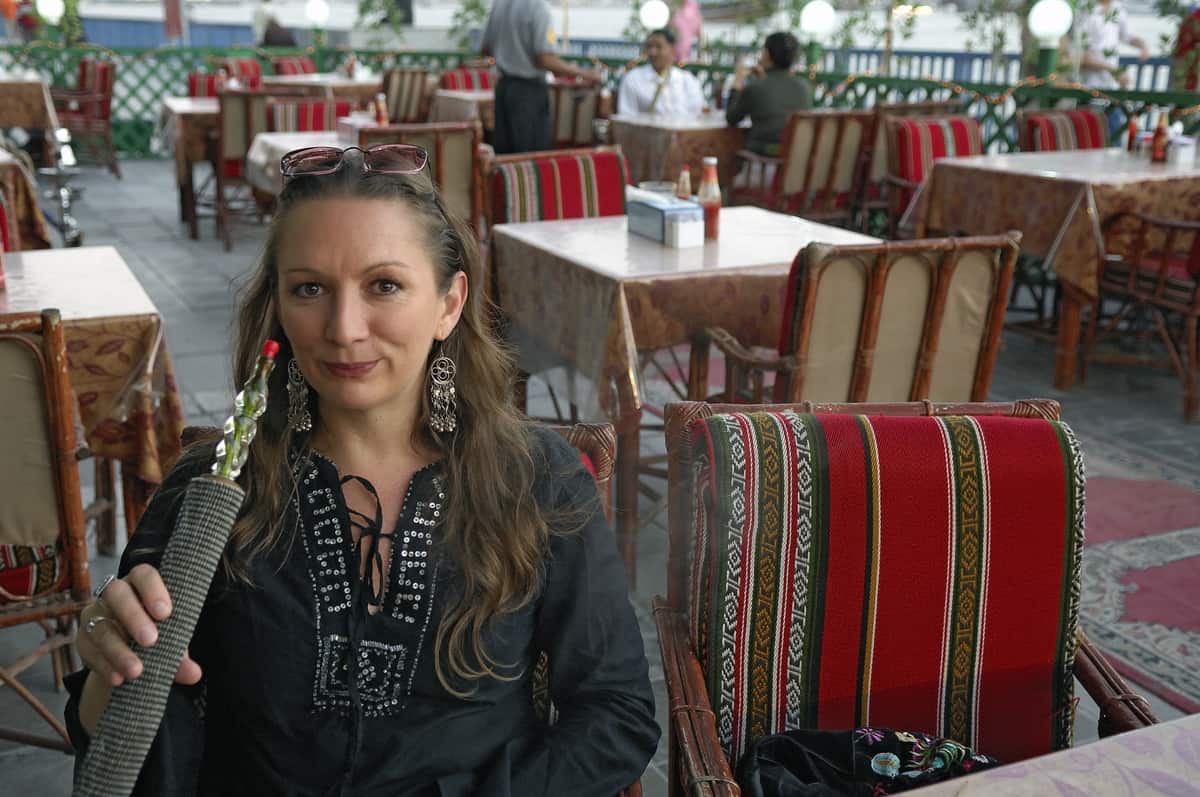
4) Do you find it difficult to balance travel and work? How do you manage it?
Our travel is our work and our work is travel, so they’re the one in the same thing and they can be all consuming – we eat, breathe and sleep travel and work. So if we need to do anything, it’s find more time for non-travel/work things to restore some balance. I think that’s partly why ‘local travel’ appeals to us so much as travelers. We much prefer to stay in residential areas rather than the tourist zone and do the things that locals do rather than sightseeing and ticking off monuments, like go to a football match, see a band, get some exercise in a park. That’s also why we prefer to stay in apartments instead of hotels – we love to shop for food and cook in some nights, and occasionally stay in and watch DVDs or even entertain our new friends. We find that a far more enriching way to travel for us personally, and I say that because I know it doesn’t suit everyone. We love the interaction we have with local people and seeing how people from all walks of life go about living their lives. That’s what we live for in a way.
5) You have written many guidebooks, including some Lonely Planet guides. What was that like?
Yep, we did around 25 commissions for Lonely Planet – first editions, updates, and contributions to guidebooks and those glossy coffee table travel books – but we’ve also worked for other publishers: Hedonist’s Guides, Footprint, Rough Guides, Dorling Kindersley, AA, Thomas Cook, etc. Some experiences were wonderful, but some were painful. The research is the best bit although it’s bloody hard work. I also love the writing.
How fun and fulfilling the job is can (like any job) depend on the people we’re working with. The main people you’re dealing with on a day-to-day basis is the commissioning editor (CE), the person who assigns you the project, gives you a brief and oversees it, and then after you submit the manuscript, editors and cartographers. If they’re professional, easy to get along with, are good at their jobs, and have been to the destination the book is on, the project is usually a delight to work on. But if they’re not very good at what they do and they don’t know the place or culture it can become incredibly painful.
6) What’s the actual process of writing a guidebook like?
We love the guidebook process actually. We love getting the brief and discussing it and brainstorming ideas – if you know your destination well and have a vision of the book, that’s a fun thing to do. We love immersing ourselves in a place for a month or two, maybe longer depending on the size of the book and whether it’s an update or first edition. It can be tough when it comes to write-up – and we have different methods for different kinds of books, whether it’s a country or city guide – sometimes we’ll be writing from hotel rooms on the road, other times we’ll rent a place somewhere.
There can be challenges, for instance, we once got stuck in flash floods in Alice Springs and our trip was held up due to torrential rain. It delayed the whole itinerary and the editor was not sympathetic when it came to extending the deadline. But they’re not all like that – Lonely Planet might have been difficult in some ways, but they were always understanding about these things. For instance, my mother was in a car accident and in a coma and we had to suddenly fly back to Australia from Greece – the night before we were due to collect our hire car for a 2 month research trip! – Terence contacted our CE and she was great. She said “don’t worry, do what you need to do” and we got on a plane to Australia the next day. We were late starting the book but we worked our butts off to make up for it.
7) Can you enjoy a place when you have to experience so much in a limited time?
The time isn’t limited compared to the amount of time most travellers spend in places. The average holidaymaker spends only a couple of days in a place. On average, we spend from one to two months in a destination doing research, plus write-up time could take a month or two. There’s nothing like doing a guidebook to really get to know a city or country intimately. How can you not enjoy it?! When we do a guidebook we’re seeing virtually every museum, gallery and sight the city has, we’re eating in restaurants twice a day, talking to chefs, sommeliers, bar tenders and shop-owners, we’re dropping into a café, bar, pub, or jazz club every night. We’re checking out the parks, visiting zoos, doing the most popular tours. Some days when I’m researching shopping, I might spend a whole day browsing all the interesting neighbourhoods and talking to all the shopkeepers. It’s great fun! Having said that of course, it was guidebook overload that led us to establishing Grantourismo and shifting to local travel, experiential travel, etc.
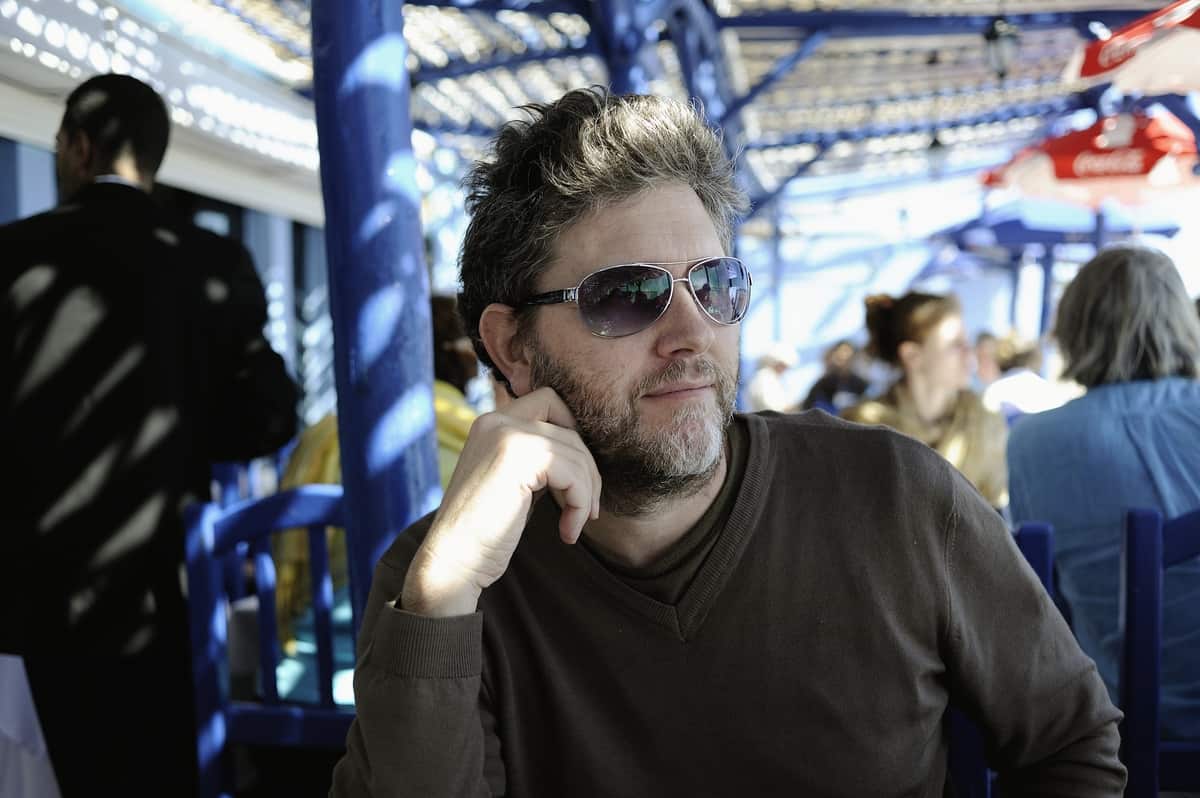
8 ) What are some of your favourite local dishes that you’ve eaten on your travels?
We do love our food, and we eat out a lot when we travel. Terry, who is the cook in our little family, also does lots of cooking courses. For Grantourismo, we were exploring the quintessential dishes of each place we stayed for a series Terry called The Dish, so he’d do some research, talk to locals, interview chefs, and then, based on their advice, decide on a dish, go learn to make it, and cook it in the kitchen of our holiday rental, and he provided those recipes on Grantourismo. I was the lucky one cause we’d eat out all the time for the sake of ‘research’ and then he might cook the thing a couple of times at home to perfect the recipe, so I’d just get to eat this delicious stuff all the time! My favourite dishes are the stews – Tomato Bredie from Cape Town, which I had never tried until we went there, and Rabo de Toro, ox-tail stew from Jerez. Great winter dishes. (We’re in Australia now, and it’s FREEZING, so he’s working his way through those recipes!)
9) You like to travel slowly and really get to know a place. What’s your advice for immersing yourself in a new culture?
Rent an apartment or house. And I’m not just saying that cause we did the project with HomeAwayUK! We were renting places when we travelled, for work and pleasure, for many years before we partnered with HomeAwayUK last year. Whenever we had to stay in a city for a week or longer we’d get an apartment – Amsterdam, Alice Springs, Brussels, Buenos Aires, Krakow, Milan, Venice, you name it – and we used the HomeAwayUK site to rent, and also VRBO, and we just loved them, and that’s why we teamed up with them.
When you rent a place, you meet your neighbours in the elevator and on the stairwell, you adopt habits you might have at home, like shopping at the same corner store or going to the same café or bar every day, and when you do that, you get a chance to develop relationships and connect with people in a way you can never do when you stay in a hotel.
People treat you differently because they respect the way that you’re choosing to experience their city/town and that makes a difference. They’ll give you tips, they might bring over some local produce, some cheese or olives or a bottle of wine, some will even go as far as to offer to teach you how to cook something or invite you for a meal or out to drinks. It’s a completely different way to experience a place, and for us, it’s the best way to experience a place now.
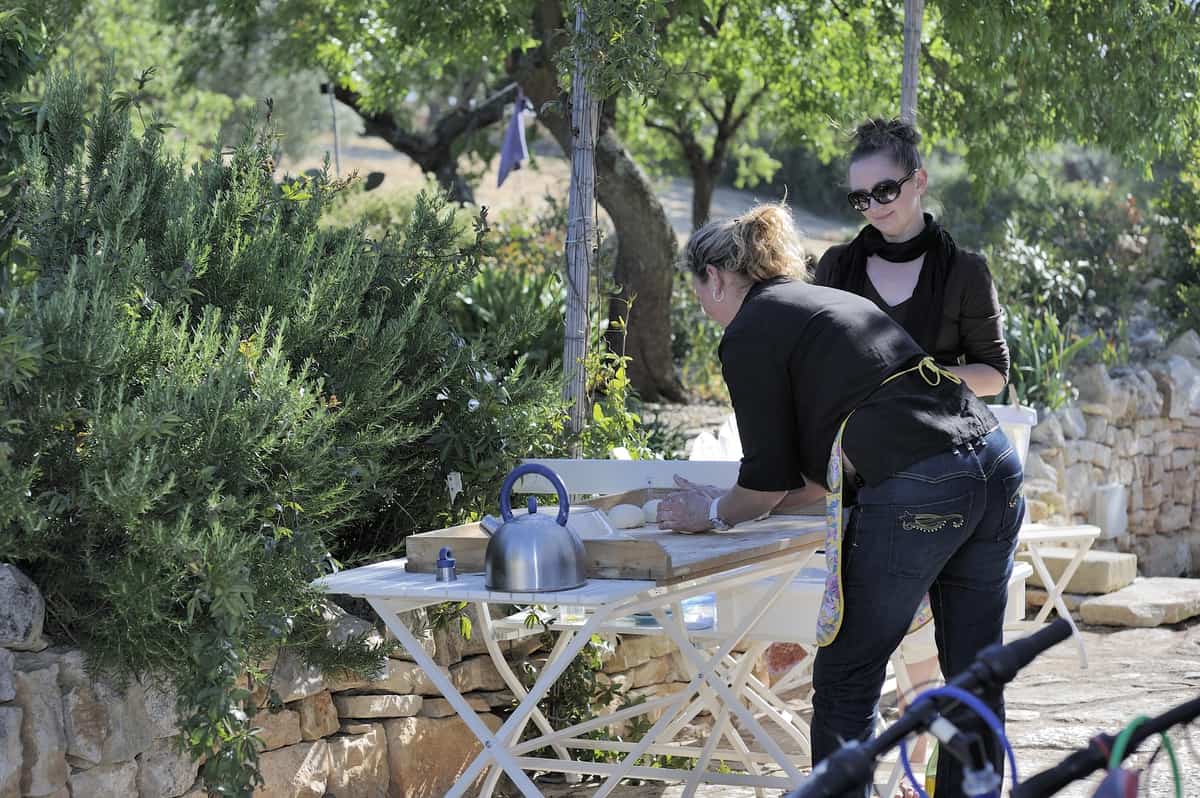
10) Our next destination is Japan. You’ve said that Tokyo is one of your favourite Asian cities. Any tips for us?
You lucky things! We love Tokyo! We would love to live there for a while. We’d go back in a heartbeat! Now you know I’m going to direct you to our stories on Grantourismo, don’t you? ;) We’ve got some great eating tips – all of these were local recommendations or places we stumbled across or passed every day. For snacking, for yakitori especially, we adored Omoide Yokocho (Memory Lane) in Shinjuku. Local graphic designer, Yuto, who we met there and befriended has some super tips here. For bars, we loved the Golden Gai, which we spent quite a few late nights at.
And of course you must go to Tsukiji Fish Markets (as everyone says!) but don’t feel like you have to go at 4am (they’re recently changed the rule again and are allowing tourists to come early once more); we went with a local foodie/sake guide at a more sensible hour when it wasn’t anywhere near as crazy and the fish vendors were much more friendly; we’d highly recommend doing that, and using her. Can we join you?! ;)
11) What are some of your favourite off the beaten track destinations?
That’s a tricky question, because what is off the beaten track for one person or culture (or ‘market’ to use tourism-speak) might not be for another, and might in fact be hugely popular for others. I’ll never forget when I pitched National Geographic Traveler a story on Dubai around 5 years ago and the editor’s message to me was that Dubai was too off the beaten track. And that wasn’t just an excuse as we had other pieces published by them, including a story on Abu Dhabi and a major web guide a couple of years ago, but at that stage Dubai was already a popular tourist destination for the British, Aussies and Europeans but not really known to Americans. And that’s just the way it is.
I remember when we went to Cuba in the early 90s – the only Australians that went there were Communist Party members and getting a visa was quite an effort – but a Canadian friend had gone there a couple of times and he said loads of Canadians were going there to lie on the beach at the time. We were doing quite a different trip of course. So often I see stories in the New York Times or wherever about some place they’ve “discovered” when in reality the place has been overran by Italians or Australians or the Brits or whoever for years. So that’s such a tough question.
If you really want me to take a stab at it… I’ll say South and Western Australia, Thailand’s Isaan region, and Calabria in Italy, just to name a few! ?
12) Where are you heading to next? Do you think you’ll ever settle down in one place?
Well after four months in Bangkok and flitting around south-east Asia, to Cambodia, Laos and Vietnam, we’re in Australia now for 2-3 months, staying with family in the country town of Bendigo, Victoria, a couple of hours north of Melbourne. Over the next month or so, I’ll head over to Perth to visit my mum and sister, Terry and I will go to Sydney to see friends and we have a story commission there for a travel magazine. We’re going to head back to Thailand and Cambodia for a month or two after that, then we’re popping across to London where I’m speaking on a panel at the World Travel Market.
We’ve then got a few very exciting Grantourismo projects coming up back in Australia later in the year: we’re doing a foodie project in Adelaide and South Australia, doing one of Australia’s great train journeys, the Southern Spirit, in platinum class (!), from Adelaide to Brisbane, and then we’re going to Hamilton Island for the food festival FEAST and will experience their foodie and experiential travel stuff there; so many people think that Australia’s Great Barrier Reef is only about snorkeling and diving, but we’re going to show them that there’s so much more. We’ll probably stay on in Australia for Christmas, but then we have stories and projects back in Asia and in Europe, where we’re going to the International Wine Tourism Conference in Umbria at the end of January. OMG, I’m exhausted just thinking about it all… will we ever settle down? We only live once, right? Right?!
You can follow Lara and Terry’s travels at Grantourismo or on Twitter.
If you enjoyed this interview then read about other long term nomads Audrey & Dan, Benny, Earl, Kirsty, Nora, Anil, Cherie & Chris, Jess & Dani, Lainie & Miro, Anthony & Elise and Akila & Patrick.
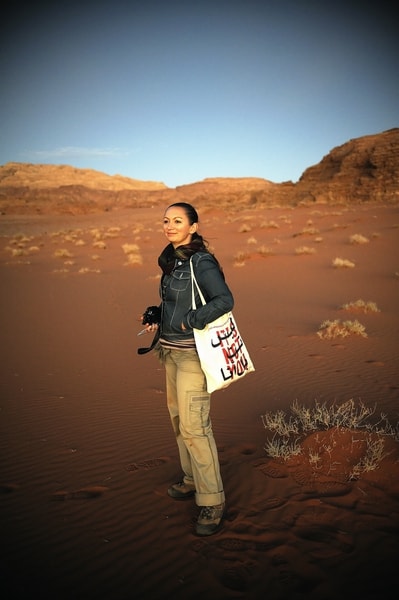
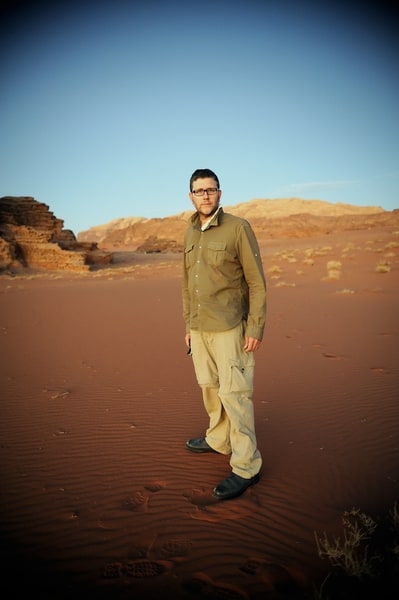
Great Interview!
Thanks, Adam! :)
Thanks, Scott – if you want it bad enough, it’s possible. As you would for any profession you want to take seriously, you just need to focus on developing certain skills – writing and research mainly; and in Terry’s case, photography; but we’re also using project management and business management skills; pitching involves understanding audiences and markets and travel trends, being able to develop concepts and stories, powers of persuasion, and a bit of self-promotion; and then there’s the digital side of course.
Terry and I both did communications degrees when we were younger, though at the time we majored in film and sub-majored in writing, and he also studied photography. He had a career as a web/multimedia designer, so he now uses those skills for the blogging side and we’re currently developing some new sites.
I think it’s just a matter of deciding how serious you want to be as a writer and photographer, and then applying yourself. Don’t ever hesitate to get in touch if you want advice, and that invitation is open to all of Never Ending Voyage readers.
They have what so many of us want! Travel-related jobs that fund further travel. Thanks for sharing the story.
What a fantastic interview with this husband and wife, writer and photographer team traveling the world and having the time of their lives. Thank you Never Ending Journey for posting such a fabulous read!!!
Hi Jeff – Thanks! How can we not have the time of our lives? :)
Oh gosh, it *is* detailed, isn’t it? That’s what happens when you do an interview with a glass of wine in your hand! ;) Thanks for the opportunity, guys – happy to share any industry tips/advice or trade secrets if your readers have any questions. Thanks again!
It’s long but interesting =) Thanks so much for a great interview Lara.
I would say it’s highly informative! :)